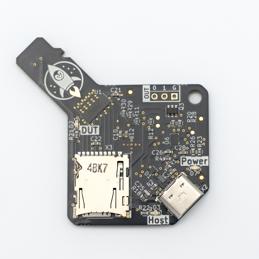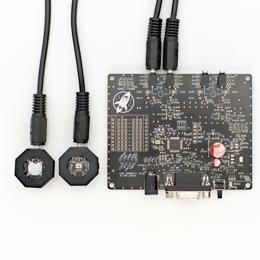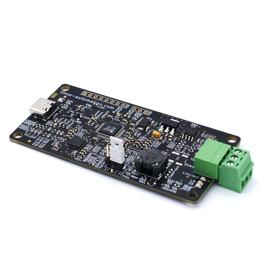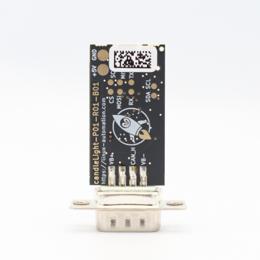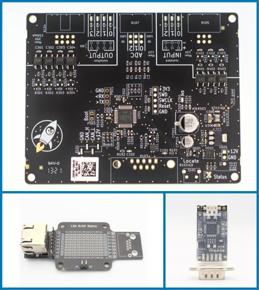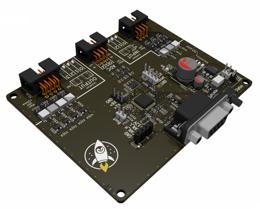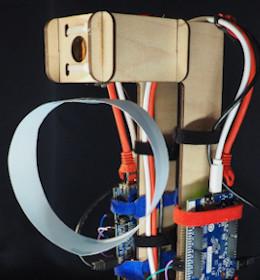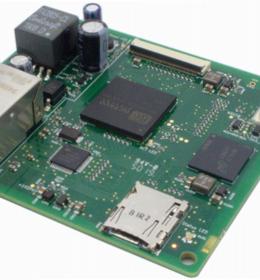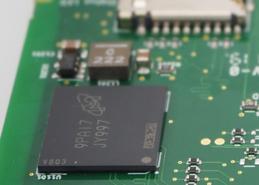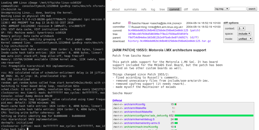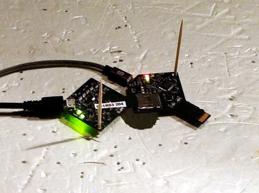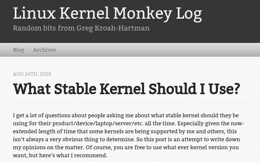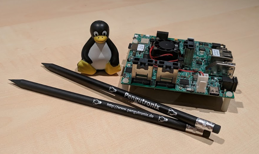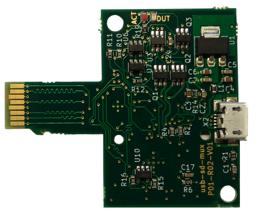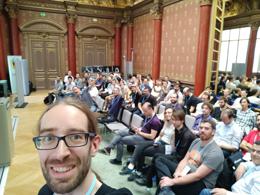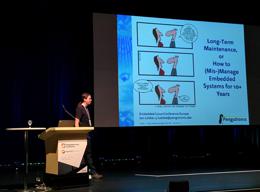Articles with tag "linux"
The USB-SD-Mux is now FAST
We have been distributing the USB-SD-Mux with our partner company Linux Automation GmbH since 2019. This has enabled us to make work easier for many embedded developers and improve software quality. At the same time, technology is advancing: micro SD cards are becoming faster and USB-C is now established as the standard.
Pengutronix at the Linux Plumbers Conference
The Linux Plumbers Conference 2024 will take place in Vienna from 18. to 20.09.2024. Luckily this does not overlap with the ELCE. Pengutronix will attend the LPC with six colleagues - so watch out for our T-shirts and hoodies and and feel free to chat with us.
Linux Automation's Optick: A Glass-to-Glass Latency Measurement Tool
New Linux Automation GmbH products are often inspired by needs we observe in our day-to-day development work at Pengutronix. Today's new product, the Optick, was inspired by our graphics team, that works with different kinds of video pipelines and optimizes them based on customer demands. One such demand is minimizing the latency of camera to display video pipelines.
umpf - Git on a New Level
Modern software development is commonly accompanied by a version control system like Git in order to have changes to the source code being documented in a traceable manner. Furthermore, any version state should be easily reproducible at any time. However, for work on complex projects such as the BSP ("Board Support Package") of an embedded system with its multiple development aspects, the simple stacking of the individual changes on top of each other does not scale.
LXA USB-T1L ❤️ Beagle Play: Exploring Single Wire Ethernet
It seems everybody is talking about Single Pair Ethernet (SPE) these days. So we want to follow the trend and do the same :-) SPE is a class of Ethernet transmission standards that uses just a single pair of twisted pair cable for data transmission. There are multiple SPE variants spanning maximum data rates from a hand full MBit/s to multiple GBit/s and cable lengths from a hand full of meters to kilometers. The most interesting ones from our embedded-centric point of view are 10Base-T1L (point-to-point, up to 1 km), 10Base-T1S (multidrop, approx. 10 m) and 100Base-T1 (point-to-point, 15 m). The new Beagle Play comes with a 10Base-T1L PHY. This makes it a great peer to experiment with our Linux Automation USB-T1L. In this post we will explore the possibilities of 10Base-T1L on a recent Linux system.
Pulse Width Modulation (PWM) is easy, isn't it? - Turning it off and on again
Part of Uwe Kleine-König's work at Pengutronix is to review PWM (Pulse Width Modulation) drivers. In addition, he also sometimes refactors existing drivers and the Linux kernel PWM subsystem in general.
Yes we CAN... add new features
Have you ever experienced an otherwise fine product that is missing just the one feature you need for your application?
Pengutronix at Embedded World 2022
Welcome to our booth at the Embedded World 2022 in Nürnberg!
CLT-2022: Voll verteilt!
Unter dem Motto "Voll verteilt" finden die Chemnitzer Linux Tage auch 2022 im virtuellen Raum statt. Wie auch im letzten Jahr, könnt ihr uns in der bunten Pixelwelt des Workadventures treffen und auf einen Schnack über Linux, Open Source, oder neue Entwicklungen vorbei kommen.
First Steps using the candleLight
So you went and got yourself one of our fancy rocket-penguin branded CandleLight dongles or, being the die hard hacker you are, went and soldered one up in your toaster oven labeled "not food safe". What's next then? How do you use this thing? Let's answer these question by grabbing a Raspberry Pi and exploring some of the possibilities.
Pengutronix Kernel Contributions in 2021
2022 has started, and although Corona had a huge impact on our workflow, the Pengutronix team again made quite some contributions to the Linux kernel. The last kernel release in 2020 was 5.10, the last one in 2021 was 5.15, so let's have a look at what happened in between.
Update of our Remotelab equipment
If it looks like an advertising blogpost, reads like an advertising blogpost ... it probably is an advertising blogpost! Nobody likes to read advertisements and we don't like to write them at all, but like all proud parents, we would like to show you the new products that our corporate subsidiary, Linux Automation GmbH, has freshly added to their store. With these new products we, and maybe soon you, will complete (y)our Remotelab infrastructure.
The LXA IOBus line of lab automation devices
I would like to present to you the LXA IOBus, a CAN-based ecosystem consisting of a protocol, a gateway server and new class of Linux Automation GmbH devices, including the Ethernet-Mux and the 4DO-3DI-3AI input/output board.
Wie man (k)ein Betriebssystem für Produkte baut
Distributionen wie Raspbian lassen die passgenaue Zusammenstellung eines Betriebssystems kinderleicht aussehen. Image herunterladen, Pakete installieren, noch ein paar Änderungen - fertig. Alles wie auf dem Laptop oder Server. Warum ein Betriebssystem aus einer klassischen Distribution im Produkt-Kontext zur Katastrophe führen kann, beleuchtet der Vortrag "Raspbian vs. Build-Systeme: Das richtige Werkzeug für solide Produkte".
CLT-2021: Mach es einfach anders!
"Mach es einfach anders!" - unter diesem Motto finden die CLT dieses Jahr im virtuellen Raum statt. Wie auch in den letzten Jahren ist Pengutronix als Sponsor dabei. Anders ist, dass wir dieses Jahr unser eigenes kleines Programm mit spannenden Kurzvorträgen und täglich zwei Quiz-Runden mit tollen Hauptgewinnen mitbringen.
Showcase: Preempt RT and Time Sensitive Networking
Nowadays, even small and cheap microcontrollers offer enough calculation power to perform time critical tasks within an industrial environment. However, as soon as actors and sensors are spread over an entire facility and are to be connected over Ethernet, the actual moment when a data packet will get processed becomes very hard to predict. At this point, Linux running a Preempt RT Kernel altogether with a network featuring Time Sensitive Networking (TSN) capabilities can help.
Showcase: Embedded off-the-shelf
A firmware upgrade is due. A newly implemented feature needs to be rolled out, a security issue patched or new hardware support added. The software, while capable, is complex. Pengutronix' strategy to handle this complexity is working on a version- controlled Board Support Package (BSP) with continuous updates and tests on the latest mainline Linux kernel.
Pengutronix at ESE Kongress
The Embedded Software Engineering Kongress is also taking place online this year and we would like to take the opportunity of easy participation to watch the lectures, join in the discussions and get into conversation.
eMMC Hardware Partitioning
When designing an embedded system, one must consider both the application and the underlying hardware in combination, if the intended long-term stability is to be achieved. While we discussed the necessity of software updates in previous posts, in this article I describe a way to use a memory subsystem corresponding to its physics to achieve the best retention and lifetime of the whole system.
Don't fear the open source - 101 of license management
Computer programs and code can be protected by copyright law. In Germany this protection cannot be removed. The German Copyright (German: Urheberrecht) grants all right to whoever created the work. Following only this general rule, only the developer could use, modify, share the code he wrote.
Launch of Linux Automation GmbH
We proudly present our new spin-off Linux Automation GmbH for selling hardware products, like USB-SD-Mux.
15 Years of i.MX in Mainline Linux
Today it has been 15 years since we mainlined support for Freescale/NXP's i.MX architecture in the Linux kernel! That was one small step for [a] man, one giant leap for (industrial Linux users') mankind :-) Here is some background about why it happened and what you might want to learn from history for your next embedded Linux project.
USB-SD-Mux: EMC Testing
Today Jonas and I went to our EMC testing lab to continue the measurements needed to certify electromagnetic compatibility for the USB-SD-Mux.
What Kernel Should I Use (Embedded Edition)
Some days ago, Greg Kroah-Hartmann wrote a great blogpost about Which Stable Kernel One Should Use?. I fully agree with his position; however, I'd like to make some additions for the industry device manufacturer use case and some common pitfalls and misunderstandings we see in that area.
First i.MX 8M Patches posted for Mainline
Eight days after NXP announced the immediate availability of the i.MX 8M processor family, Pengutronix developer Lucas Stach today posted a first set of 11 patches to support i.MX 8M in the mainline kernel (linux-gpio, linux-clk, linux-arm-kernel and linux-netdev).
USB-SD-Mux: Automated SD-Card Juggler
Once the bootloader on your embedded device is up and running the development of kernel and userland in PTXdist-based BSPs is usually based on booting from network. Thus there is no need for the developer to write the boot media with a new image.
Talk: Long Term Maintenance at Embedded Recipes (Paris)
While the technical side of building embedded Linux systems is mostly solved, running such systems connected to the internet over a long time has its own challenges. At the Embedded Recipes Conference in Paris, Marc Kleine-Budde will talk about establishing a sustinable workflow for this usecase tomorrow (2017-09-26).
ELC Europe 2016, Berlin
At the ELC Europe 2016 in Berlin our colleagues Jan Lübbe and Marc Kleine-Budde are talking about two interesting and important presentations about Kernel longterm maintenance strategies and verified boot.
Pengutronix' Activities in Linux 3.13
During our embedded linux projects, the kernel engineers at Pengutronix do a lot of improvements which end up in the mainline kernel. Here's a short story about what went into the recently released 3.13:


